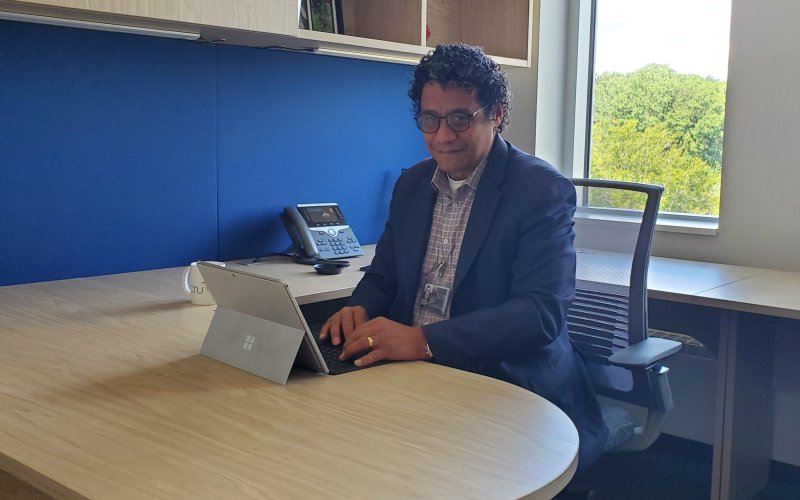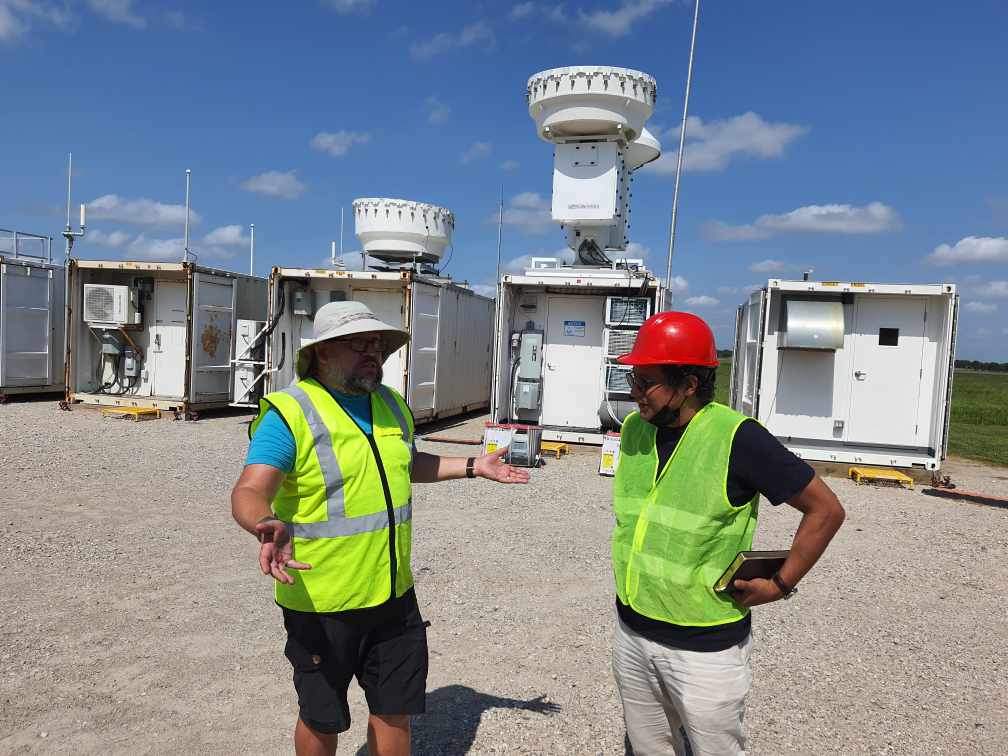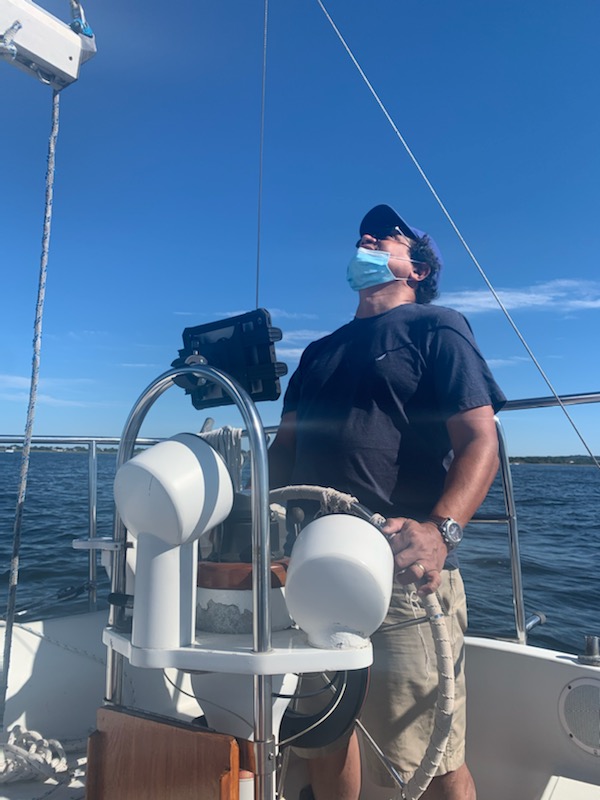5 Questions with Faculty: Jorge E. González-Cruz

ALBANY, N.Y. (June 30, 2022) – The University at Albany welcomed Jorge E. González-Cruz this month as a new Professor of Empire Innovation at the Atmospheric Sciences Research Center (ASRC).
The SUNY Empire Innovation Program supports the recruitment and retention of faculty with strong track records of research accomplishments. González-Cruz holds several patents in solar energy equipment, aerosol detection, and energy forecasting for buildings, and was recognized as a prominent young researcher by the National Science Foundation with a prestigious CAREER Award. His research has attracted more than $40 million in external funding and he has co-authored more than 100 peer-reviewed papers.
Prior to joining UAlbany, González-Cruz served as the director of The City College of New York (CCNY) Initiative to Promote Academic Success in STEM, lead scientist of the Coastal-Urban Environmental Research Group, and the CCNY Presidential Professor of Mechanical Engineering. He earned his doctorate (1994) and bachelor’s (1988) degree in Mechanical Engineering from the Georgia Institute of Technology and from the University of Puerto Rico-Mayagüez, respectively.
He is a Fellow of the American Society of Mechanical Engineering and Former Vice-Chairman of the American Meteorological Society Board on the Urban Environment.

What drew you to UAlbany?
UAlbany’s commitment to be impactful at the local, regional and global levels in advancing climate and atmospheric science, from fundamentals to applications, is an attractive proposition for most, if not all researchers. The unique, interdisciplinary scholarly environment at ASRC, the Department of Atmospheric and Environmental Sciences, and the emerging field of climate-related risk management represented through the new College of Emergency Preparedness, Homeland Security and Cybersecurity, sets the stage for the University to make significant contributions to climate adaptation and mitigation, especially among the most vulnerable populations. Having the opportunity to join and contribute to these efforts is a life-long career opportunity.
Why did you decide to pursue your field?
Many years back, I resolved that urban climate represents a new frontier where both science and engineering converge. The interaction of the built environment with the natural environment brings new challenges that require an understanding of both disciplines. This is most represented in the flows around urban canyons where fundamental theories of turbulence in the surface – explored by engineers – collapse with traditional atmospheric science processes. My training in both fundamental thermo-fluids engineering and atmospheric sciences was just fitting to this emerging field, unintentionally. Thus, my career has been evolving – from droplets to clouds.
What are you working on now?

My research group, which includes collaborators worldwide, has worked over the last 10-plus years in the development of new ways to represent the coastal-urban environment as a unified system that places people at the center and integrates the built and natural environments. My hope is that this will advance our capacity for accurate forecasts of both weather and climate where it matters most – where people live. Our research is opening new opportunities for applications and technological advances in areas of urban energy at the city and building scales, improved outdoor/indoor air quality, safer transportation systems of all types, and new ways to innovate coastal living for economic development and/or recreational activities.
A key focus of my work is to inspire and collectively train the next generation of coastal-urban climatologists from around the world, who will make a bigger difference for our future.
What are your goals in this new position?
Good question. My overarching goal is to carry out the above mission and spread it worldwide through collaborations with colleagues and students. Key to this is to attract and train a good number of students and young scholars into the field of urban climate, particularly from non-traditional socio-cultural backgrounds. Our field needs more scholars from diverse backgrounds, particularly Hispanics and African Americans. Thus, my goal is that our research and training will attract a wide range of scholars and reach more regions around the world, particularly where innovation in coastal-urban science is most needed.
If you were not leading research at a university, what would you be doing?
I would probably be sailing and fishing off the coast of my home island of Puerto Rico along with family and friends.




